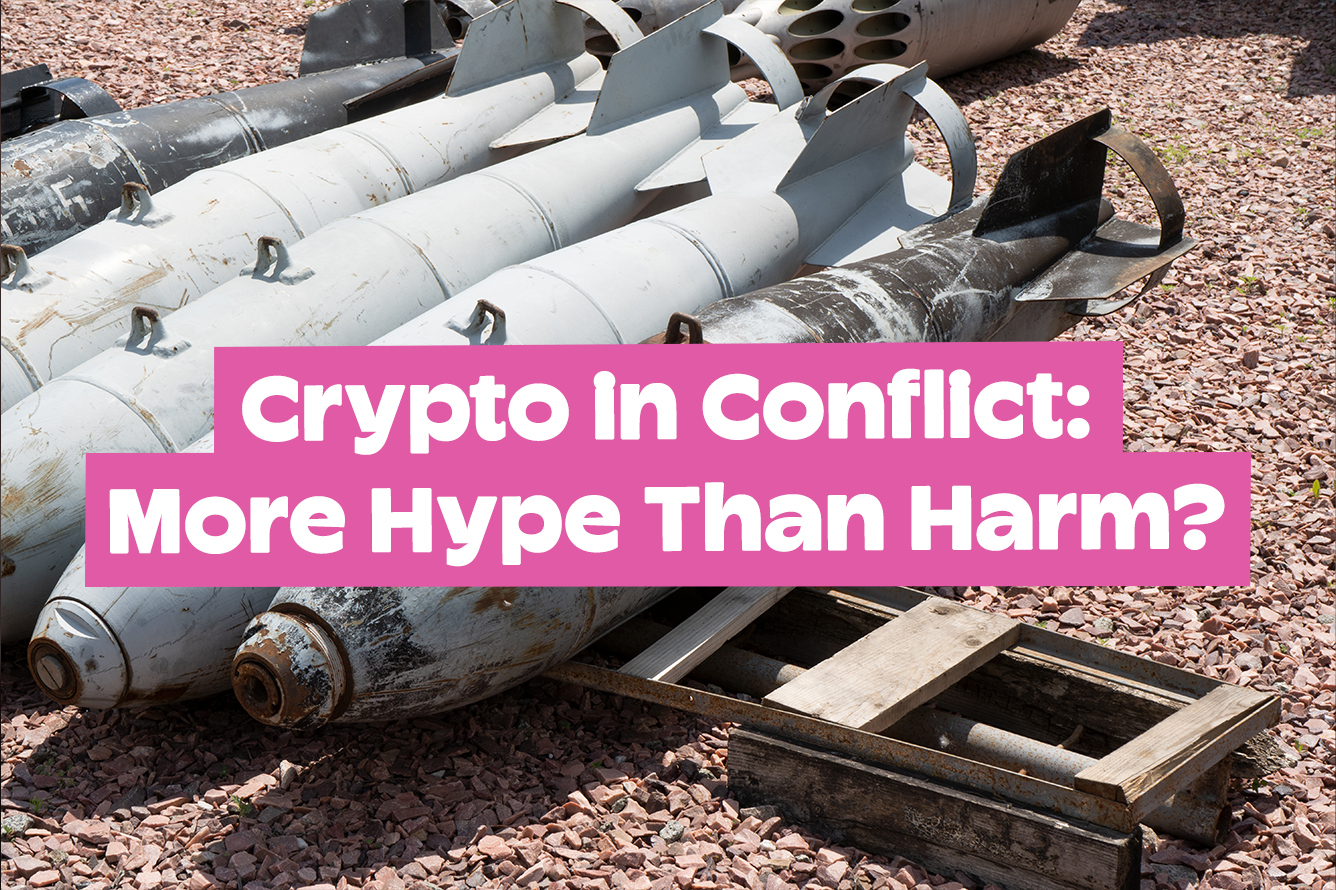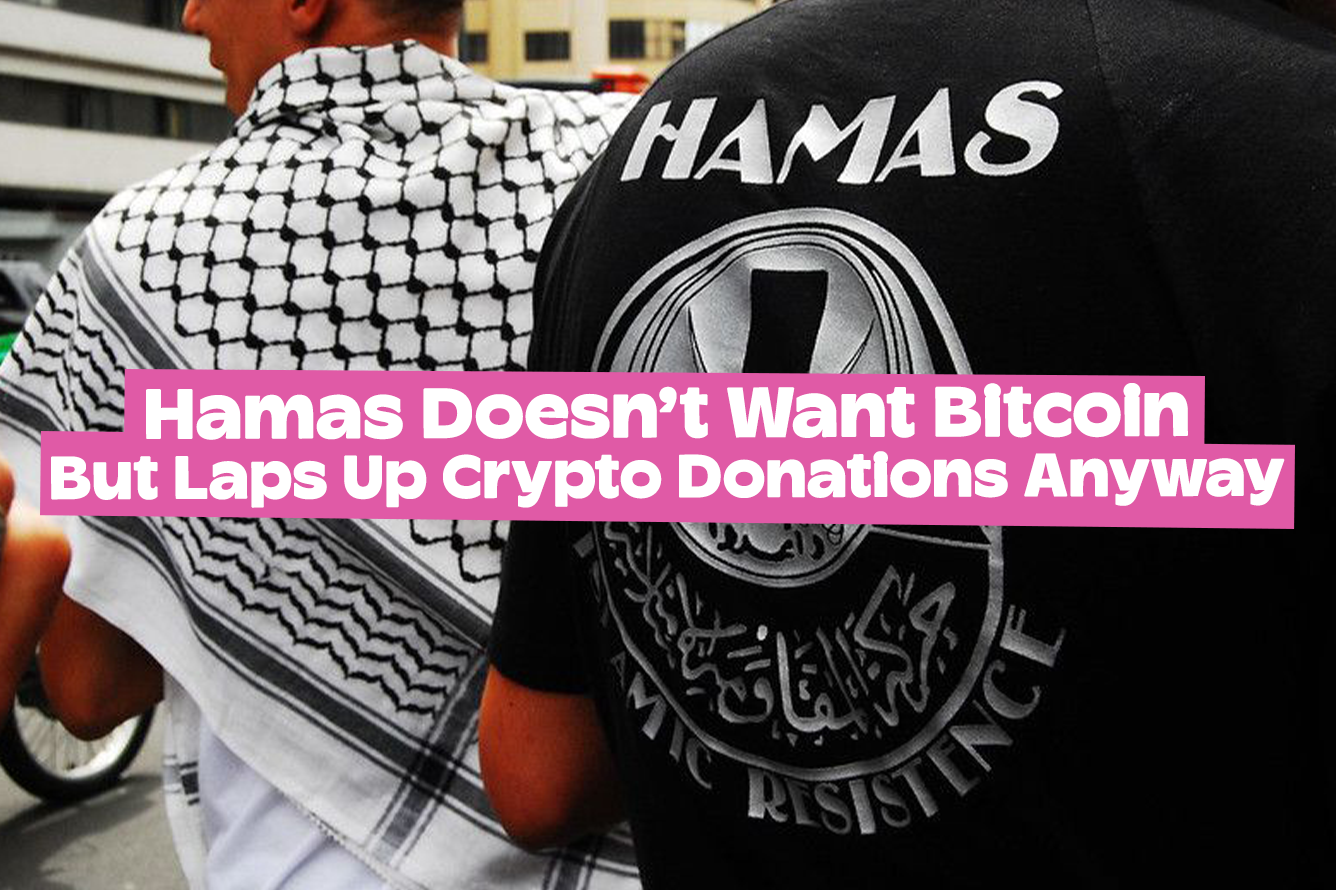Crypto in Conflict: More Hype Than Harm?

Cryptocurrency: the digital age's double-edged sword. One side promises financial freedom, decentralization, and a new world order. The other? Well, if recent headlines are to be believed, it's the shadowy financier of global conflicts. But let's not get ahead of ourselves.
The recent surge in violence between Israel and Hamas has brought to light some uncomfortable questions about the role of cryptocurrency. Reports suggest that Hamas has been receiving crypto donations, fueling speculations that digital assets are the new war chest for such groups. But how much of this is fact, and how much is mere sensationalism?

Chainalysis, a name that's become synonymous with crypto forensics, suggests we might be blowing things out of proportion. They argue that while there's evidence of some terrorist groups dabbling in crypto, the scale is nowhere near what's often portrayed. Traditional financing methods, from cold hard cash to intricate banking maneuvers, still reign supreme in the shady world of illicit funding.
But let's say, for argument's sake, that Hamas did receive some crypto donations. The decentralized nature of cryptocurrencies does offer a level of anonymity and freedom from traditional banking scrutiny. But, and it's a big but, the blockchain's transparency also means that with the right tools and expertise (hello again, Chainalysis), these transactions can be traced. So, while crypto might offer a temporary veil, it's by no means an invisibility cloak.
Israeli authorities have seized “tens of millions of dollars” in crypto from Hamas-linked addresses in recent years, Reuters reported, citing blockchain researchers TRM Labs. Furthermore, the recent actions by Binance, one of the world's largest crypto exchanges, show that the industry isn't turning a blind eye. Over 100 accounts were shut down in the aftermath of the Hamas attacks on Israel. A proactive step? Perhaps. But it also underscores the industry's commitment to curbing illicit activities.
Drawing parallels, the ongoing Russia-Ukraine war and other global hotspots have also been scrutinized for potential crypto connections. But as with the Israel-Hamas situation, it's crucial to differentiate between the tool (cryptocurrency) and its user. A knife can be used to prepare a meal or cause harm; its use is determined by the wielder's intent, not the tool itself.
The Israel-Hamas conflict and the alleged crypto connection is a stark reminder that in our digital age, every innovation will be tested, for better or worse. But before we cast stones at crypto, let's remember that it's not the currency that's at fault, but how it's used. And maybe, just maybe, it's time to look beyond the headlines and see the bigger picture.
Elsewhere,
- Ava Labs Unveils $200M Blueprint for Avalanche's Expansion in India: Ava Labs is setting its sights on India, aiming to cultivate a thriving developer ecosystem around its Avalanche platform. The firm has hired Devika Mittal of OKX and Kamakshi Arjun of Polygon as head of India and business development lead for India respectively, and with a whopping $200 million fund dedicated to this initiative, Ava wants to collaborate with local educational institutions, startups, and developers. The goal? To bolster blockchain innovation and adoption in the subcontinent. As Avalanche's footprint grows globally, India seems to be its next strategic frontier.
- Tesla Continues to HODL Bitcoin: Tesla's third-quarter results for 2023 have shed light on its Bitcoin holdings (9,720 BTC), which remain untouched for a second straight quarter, and are now valued at around $275 million. While the electric car giant missed some of Wall Street's earnings expectations, it's clear that their focus is shifting towards aggressive AI development. Elon Musk, ever the enigmatic leader, continues to juggle his crypto and tech endeavors, leaving the market in eager anticipation of his next move. The stock is down about 4.7% in after-hours trading, at $242.68.
- Ethereum's Whale Alert – A Massive Sell-Off and Buterin's Swift Denial: The crypto community was set abuzz when an Ethereum "whale" liquidated a staggering 13,871 ETH, or almost $22 million. This massive sell-off sent ripples across the market, leading to speculations about the identity of the investor. Ethereum's founder, Vitalik Buterin, amidst swirling rumors, took to social media to clarify that he wasn't behind the move. "I haven't 'sold' ETH for personal gain since 2018," Buterin said on Warpcast. As analysts predict potential price fluctuations for Ethereum, the crypto world watches with bated breath.
- Binance's French Connection Hits a Snag: In the latest in a series of high-profile exits from Binance, Stéphanie Cabossioras, the managing director of the exchange's French unit, has stepped down. Her departure comes amidst a challenging year for the crypto giant, which is facing regulatory scrutiny worldwide. This move is seen against the backdrop of multiple lawsuits and regulatory challenges in various European countries, including France. Binance's global challenges aren't limited to Europe; recent developments in the US have also put the exchange under the spotlight.
- Coinbase Rolls Out Perpetual Futures Trading, But Not for the US: Coinbase is upping its game, introducing perpetual futures trading on a global scale, but the US is left out of the party. This new feature allows traders to use USDC to trade contracts for major cryptocurrencies like Bitcoin, Ether, Litecoin, and XRP. The launch comes after Coinbase International Exchange received the green light from the Bermuda Monetary Authority. As the crypto market's appetite for derivatives grows, Coinbase's move is seen as a strategic attempt to tap into this burgeoning demand, though not from Arthur Hayes.
Pusseys. Lmk when ur at 100X. https://t.co/UwvL5lVnb5
— Arthur Hayes (@CryptoHayes) October 18, 2023

